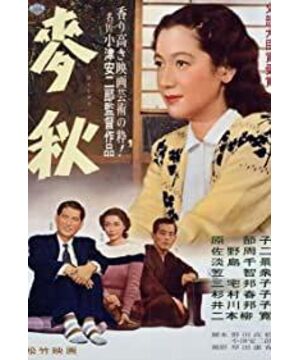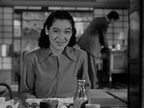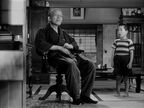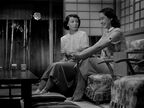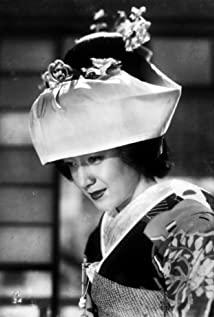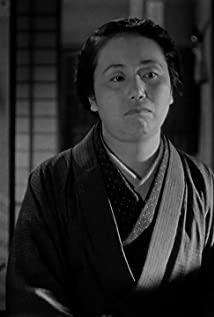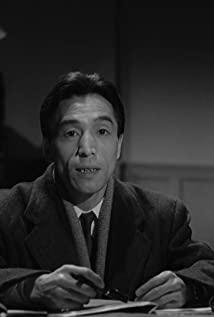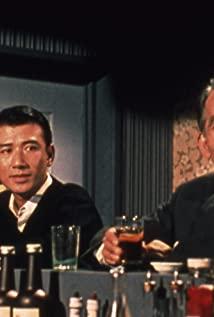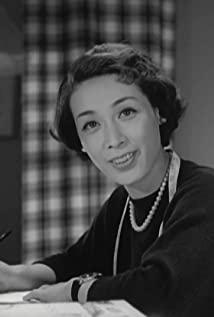Yasujiro Ozu's "Mai Qiu" (1951), I watched it five times on and off before I finished it. For a movie that was a little over two hours long, I watched it for more than 10 to 20 minutes each time, and the fifth time I watched the remaining one hour, I watched it all in one go. Maybe because I watched a lot of Ozu's movies on the computer, I didn't have much impression of the one hour before and half an hour after "Mai Qiu". But in the last half hour, when Noriko visited the mother of her brother and colleague, as usual, the calm footage of the movie gave me the same amount of information as ten running bulls rushing towards me, and I felt Nervous, excited, never let go of any subtle shots.
Half an hour before the end of the movie, I was terrified, and I was always afraid that the next shot would ruin the beauty of the movie, but Ozu continued to shoot until half an hour later, when he appeared in the countryside. . Every shot in the last half-hour seems to be a perfect ending, and every continued shot is very natural. As a whole, the film continues gently and slowly for 124 minutes, and finally ends with a better and more beautiful shot than any previous shot. At the end, I was excited for many days after watching the movie. Here I only take Noriko's marriage as an example, to talk about my simple understanding of the hazy feeling of Ozu's films.
When Noriko was about to get married, her manager Satake recommended Manabe, a senior from a well-known family, to Noriko. When the family was happy about it and felt that Noriko's marriage was promising, Noriko visited her who was about to move in. The home of his brother and colleague Yabe in Tokyo, Yabe was not at home, his little daughter fell asleep, only Yabe's mother was there, she told Noriko that she hoped that Noriko could marry into the family, just a wish before leaving, almost doomed to fantasy My mother just wanted to say a long-term wish before leaving, but I didn't expect Noriko to agree to marry Yabe.
The basic storyline is over here, and the simple reason why Noriko decides to marry in an instant is just interpreted. I didn't choose Manabe recommended by the manager because I didn't have confidence in the 40-year-old Manabe. People who haven't settled down at 40 can feel far less secure than a widowed man with a three-year-old daughter, Yabe, and Noriko. I have known Yabe for a long time, and the love born from the long-term casual contact may not be enough for marriage, but Noriko is still married.
Noriko went to visit the manager Satake for the last time before she left Tokyo. Satake asked Noriko to see Tokyo again. Tokyo is also very good. Satake is also very good. The hazy feeling of the movie is magnified here. Noriko's original love may be the manager Satake, but Satake doesn't know it. But Ozu only gave a few shots that could almost be omitted about the two people missed. There is no wasted plot here, such as the sad scenes that often appear in Japanese dramas, even if Japanese dramas are shot naturally and decently, no matter how pure and sad, it is still a scene that destroys the beauty and destroys the hazy feeling. This is the gap between Japanese dramas and Ozu. The hazy feeling of a Japanese beauty was instantly frozen in Ozu's performance.
Just imagine that if you follow Satake-kun's regret, Satake may have loved Noriko for a long time, and Noriko may just faintly like Yabe, not the love of marriage. Noriko has doubts about her choice, and then questioned. The ex-wife left her daughter's powerlessness and sense of escape, and then entangled back and forth. A regrettable marriage, whether Noriko married Yabe in the end, was doomed to the loss of the hazy feeling. From this aspect, Ozu is extremely ambiguous, and in other people's most dramatic plots, he erases lightly and carelessly, leaving only the choice of the protagonist, without tears or repetitions, just to Why do you have to be so entangled in getting married? It's not for a lifetime, why should you weigh it again and again? In the eyes of Noriko who married, getting married is just a simple matter, just worrying about bringing inconvenience to the family. As for himself, the love of Yabe as a husband and wife is no longer the most important thing. It is just a clear and light thought, and he has determined his husband without leaving any traces.
Ozu's "sorrow of things" in life is shown again here. For the life of boundless suffering, the inevitable life, the life of being born as a human being, it is just a few strokes of such a hazy feeling, a few strokes. Hooked, exhausted beauty and nature.
As for the hazy feeling, I saw Wang Dewei's comments on Shen Congwen in the afternoon. Wang Dewei talked about Shen Congwen's "beautiful, healthy, natural life form that does not violate human nature", and talked about Lu Xun's writing about beheading and Shen Congwen's writing about beheading. different. Different from Lu Xun's criticism and torture, Shen Congwen's beheading is calm, calm, affectionate and aesthetic. Why judge? Why do you say beheading is bad? Is it bad to miss it? Wouldn't it be good to miss Manabe, who came from a famous family? Is it bad to miss manager Satake? It's just a form of life, but what is human nature? Righteousness? Crying? Thirteen hairpins? Human blood buns?
In nature, there are yin and yang, the sun and the moon, water and fire, and there are factors of duality. Nature goes back and forth for trillions of years, the sun rises and sets, the moon is full and short, the water freezes and the fire goes out. The law of trillions of years is naturally not dared to arbitrarily judge. On the other hand, there are so many things, so many judgments, so many good and bad, crying sensational, weeping sadness, and what kind of emotions people have. Why do people have so much confidence to judge? It is good to be born as a human being. If you can save a little hazy, a little beauty, a little health, and a little naturalness, it is a very beautiful creation for human beings.
If you want to make judgments, cry, regret, be rational, struggle, and revolutionize, it might be better to think about Kurosawa or Lu Xun first. If you still can’t have their judgment ability, then watch Ozu’s movies. a good thing.
View more about Early Summer reviews


